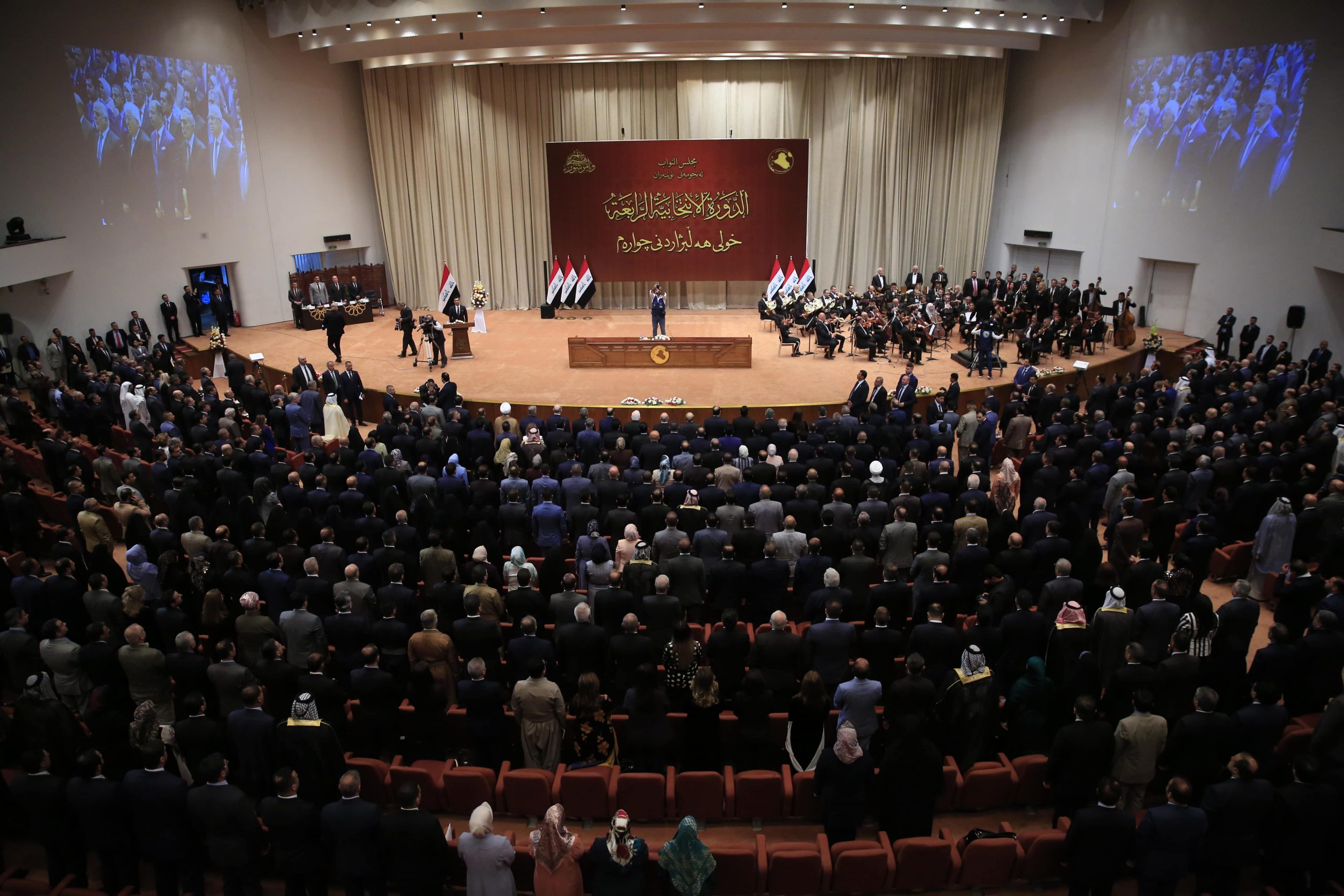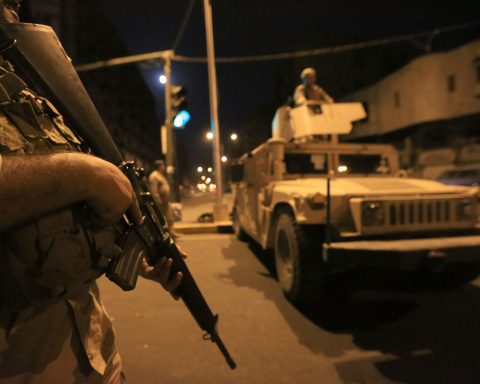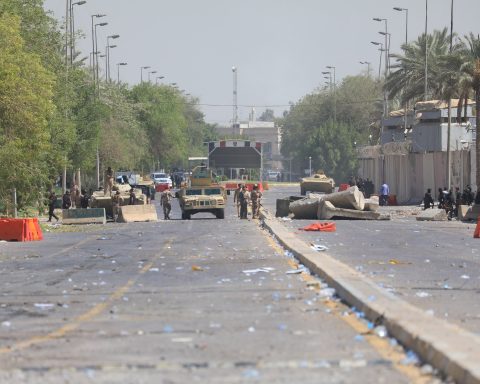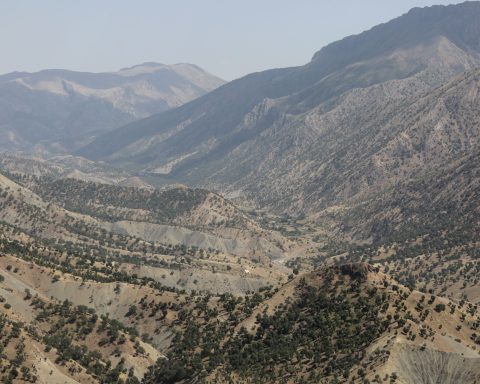It is of no surprise that the Iraqi people have lost faith in their country’s electoral system. Polling in Iraq since the earliest days of the American occupation post-2003 has always been marred by sectarian politics, violence against “undesirable” candidates, and the blacklisting of large swathes of Iraqis for alleged ties to the former Baathist dictatorship of Saddam Hussein, which was toppled by an illegal invasion.
In more recent years, these problems have exacerbated tensions between the Iraqi elites and the people they are supposed to govern, leading to extensive boycotting. This pattern appears to be ready to repeat itself, and Iraq may find the election result itself an indictment of its political system rather than representing any form of absolution.
A history of disenfranchisement
One of the main barriers to any free and fair elections in Iraq has been the controversial de-Baathification process, first instituted by US military governor Paul Bremer.
Under Coalition Provisional Authority Order One, Bremer disestablished and banned the Baath Party as a legal political entity in Iraq, and caused a ban on party members from taking public office. While the second clause of the order appeared to have targeted “senior party members”, in reality, it affected a ban on all Baathists, whatever their rank, and this was made explicit in the third clause of the order that targeted “junior members”.
Interestingly, the sixth and final clause allowed Bremer the power to ignore this order on a “case-by-case” basis. This came in handy for many Baathists who had sold out to the American occupation and who had close ties to neighboring Iran, such as the infamously sectarian Shia Islamist parliamentarian Hanan al-Fatlawi, who, along with her brother, Sabah, was allowed to serve in public office and in the military establishment.
However, anyone who was deemed to be a political threat was sidelined by effectively pointing the finger at them and loudly declaring “Baathist!”, reminiscent of the witch hunts of dark ages Europe. Of course, this was extremely easy to do as Baathist Iraq was totalitarian and most people had to become Baathists in order to seek career advancement. A school headteacher would have had to have been a member, even if only in name, simply because of their job.
The threat of de-Baathification was also used to silence any Sunni voices, whether they were effective opposition or even those who had cooperated with the American occupation and the subsequent post-Baathist order, now led by Shia Islamists who ruled in Baghdad but were directed from Tehran.
The example of the Sunni Arab and former Vice President Tariq al-Hashimi comes to mind, a man who did his utmost to facilitate the nascent political process only to be chased out of the country by pro-Iran Shiites like former Prime Minister Nouri al-Maliki, one of the most sectarian politicians in Iraqi history. To this day, al-Hashimi is in exile on trumped-up charges of terrorism and spends his time between Turkey and Qatar, likely never to be involved in Iraqi politics again.
Terror, protests, and state violence undermine democracy
The above events – and many others – ensured that the US only dealt with the Shia Islamists and subservient Sunni Islamist groups such as, the Iraqi Islamic Party, who are token Sunnis in parliament and who have no legitimacy amongst their own constituents.
After al-Maliki violently crushed the popular Sunni protest movement and was directly responsible for the emergence of the Daesh/ISIS terror group, leading to the almost total destruction of major Sunni cities such as Mosul, Tikrit, Ramadi, and others, the Sunnis effectively withdrew from the political process and have been subdued. Many now live in refugee camps, are denied identity papers, and their primary concerns revolve around their very survival rather than engaging in elections.
Similarly, and after Shia Islamist elites had spent the better part of two decades blaming all of Iraq’s woes on Baathist remnants, Al-Qaeda, or Daesh/ISIS, whom they had finally defeated in 2017 (and scapegoating the entire Sunni Arab community in the process), they suddenly ran out of excuses to provide to their Shia Arab electorate as to why Iraq had no functioning power grid, little access to safe drinking water which poisoned tens of thousands, and why they were presiding over one of the most corrupt political systems in the world.
The 2018 election was a watershed moment in that Iraqis largely boycotted the vote, leading to a paltry turnout of an embarrassing 44.5 percent. A political alliance between sectarian Shia cleric Muqtada al-Sadr and the communists garnered the most votes and won them a minority lead in the Iraqi parliament, but again it was not enough to form a strong government and the now customary horse-trading over which parties get which ministries took place.
Since then, the 2019 protest movement, which is largely Shia-led, has erupted and continues today. The COVID-19 pandemic has further ravaged an already exhausted economy, and the state and its allied Iran-backed militias have engaged in extreme violence against a Shia community that had hitherto been spared their wilder excesses, which were previously reserved exclusively for the Sunni community, who were subjected to sectarian cleansing campaigns, including in Jurf al-Sakhr which has been emptied of Sunnis.
Arguably, the situation of Iraqis in the 2018 elections was far better than it is now. If the electoral turnout was 44.5 percent then, it can be assumed that we will either see that figure replicated in the elections due to take place in October this year, or else plummet even further. This is particularly the case considering Shia militias have continued to kill prominent activists, such as Ihab al-Wazni earlier this year, and they do so with total impunity, as demonstrated by the release of the man suspected of ordering Wazni’s slaying, Qasem Muslih, early last month.
With the two largest demographics – both the Sunni and Shia Arabs – now having lost faith in the political process, and with increasing calls for a mass boycott, it is likely that the upcoming results will lack legitimacy and Iraqi activists will continue to escalate against a state they view as serving the interests of foreign powers rather than those of the Iraqi people they are supposed to serve.
If recent history is anything to go by, the state and its allied militias will respond with overwhelming violence, and will attempt to rule over all of Iraq using fear rather than popular buy-in and participation. This can only lead to increased instability, chaos, and a populace that will begin to consider violence as the only adequate means of restoring national sovereignty and self-determination.














